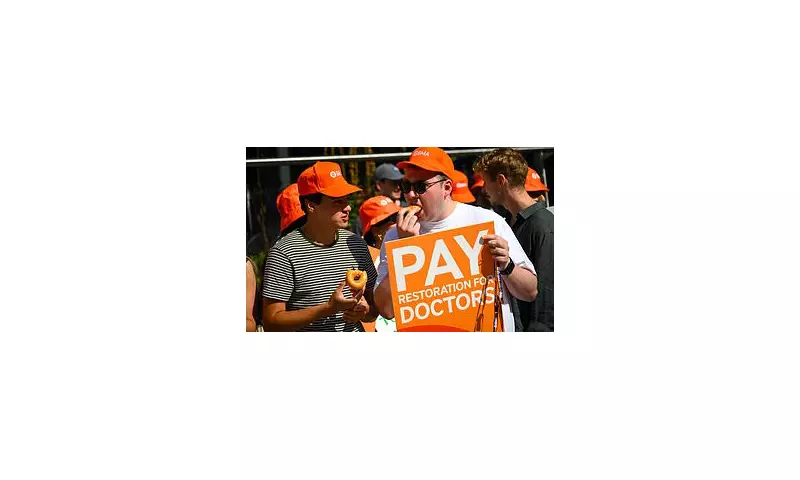
Health Secretary Wes Streeting has launched a scathing attack on the British Medical Association (BMA), labelling the doctors' union 'morally reprehensible' and accusing it of behaving like a cartel that threatens the very future of the NHS.
A Government Under Pressure
In a hard-hitting speech at the NHS Providers’ conference in Manchester, Mr Streeting warned that the BMA is inflicting significant 'damage and disruption' on the health service through repeated strike action. He confirmed that the government would not 'be held to ransom' by the union.
The criticism comes ahead of another planned five-day walkout by resident doctors, set to begin at 7am on Friday. Mr Streeting revealed that he had made a last-ditch offer to the doctors in an attempt to avert the strikes, including more specialist training places and financial help with exam fees and professional membership dues.
He highlighted that resident doctors have received a 28.9 per cent pay rise over the past three years, insisting that taxpayers cannot afford more. However, the BMA's resident doctors committee rejected the offer within hours, without consulting its wider membership, despite reports that support for strikes is waning.
Strike Mandate and Patient Impact Questioned
During a Q&A session, Mr Streeting was asked if doctors should be banned from striking, similar to the police. He defended the right to strike but challenged the BMA's use of that power. 'What I’d say to the BMA is, with that power comes a responsibility and a duty of care to patients,' he stated.
He pointed to the turnout in the latest ballot, noting that a majority of resident doctors did not vote for this strike action. He expressed disbelief that after such a significant pay rise, doctors would still choose to walk out, a move he claimed causes 'untold misery and disruption to patients' and places immense pressure on other NHS staff.
Broader Criticisms and NHS Response
The Health Secretary also took aim at consultant members of the BMA, accusing them of lobbying against higher taxes for the wealthy while demanding higher salaries funded by other taxpayers. He urged the BMA to 'get real' about the challenges facing public finances.
His stance was met with applause from the audience of NHS executives, including Sir Jim Mackey, chief executive of NHS England, who later described the strikes as 'irritating' and 'disruptive'.
NHS figures show that consultant average full-time equivalent earnings are £127,540 a year. In response to the impending strike, Sir Jim has urged NHS trust leaders to maintain at least 95 per cent of elective activity and to prioritise emergency and maternity care.
Matthew Taylor, chief executive of the NHS Confederation, echoed the concerns, stating, 'No one wins if these strikes go ahead' and warning they risk exposing patients to harm while weakening the government's ability to offer more.





